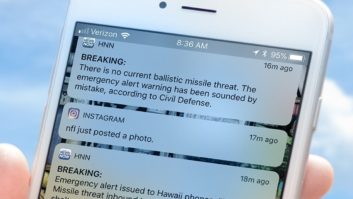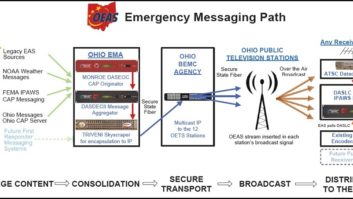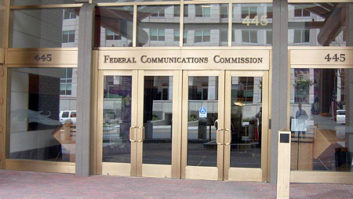
The New Jersey Broadcasters Association would like to see State Emergency Communications Committees around the country wield more power and ensure broadcaster input in the development of EAS state plans.
Paul Rotella, president and CEO of NJBA, tells Radio World he asked the Federal Communications Commission to clarify the role of SECCs in preparing and maintaining each state’s EAS plan.
“The SECCs have been ignored for years. I don’t believe New Jersey is the only state with this problem. Our SECC has no teeth and basically been abandoned,” Rotella said.
“I think their demise started when the FCC and FEMA [Federal Emergency Management Administration] began sharing some EAS duties. Then the FCC thought FEMA was doing certain things and vice-versa. Therefore, I think local and state officials now look at SECC like it has been delegitimized.”
In addition, Rotella says law enforcement “could be overreaching a bit” when it comes to its involvement in New Jersey’s SECC.
“This isn’t a slam on law enforcement. They are trying very hard, but they are not broadcasters. They need funding, more staff and tech training. They also need our help and expertise to make sure EAS works correctly.”
Rotella’s association, along with the New Jersey State Police, went so far as to ask that state’s Attorney General’s Office to review FCC rules and regulations regarding the scope and authority of the New Jersey SECC and its state chairperson.
“The AG’s office concluded several years ago that while the FCC has established a SECC in every state there does not seem to be any clearly defined authority or direction. From that point on and after the subsequent retirement of the state’s communication officer, the New Jersey State Police have taken more and more control of EAS,” Rotella said. “At one point they even rewrote the state EAS plan and were ready to disseminate it in good faith, but without obtaining approval from the SECC, NJBA, or FCC.”
He believes the FCC understands his group’s concern with the SECC structure and “could put out a notice or rulemaking or something” to reinforce or possible recreate the SECC.
Separately, in a recent letter to New Jersey Gov. Chris Christie and New Jersey State Police, Rotella pushed the need for better technology for public warning in the state.
“The NJBA supports the acquisition and implementation of a statewide voice and text-based emergency notification system featuring FM radio-based notification and EAS text and audio for the state of New Jersey,” he wrote, describing its stance in the association’s newsletter.
Rotella points to a system such as AlertFM, which delivers emergency messages using data subcarriers of existing local FM radio stations, providing overlapping and redundant signal coverage. The broadcast messages are free to the public, according to NJBA.
“Parenthetically, I think it is time for the state to look at investing in a new FM-based alert system to supplement what we have. We should take advantage of the FM infrastructure that is already in place in New Jersey and elsewhere. It works well in other parts of the country,” Rotella said.










